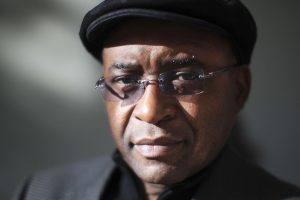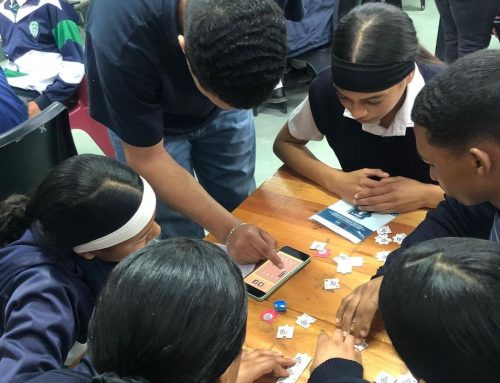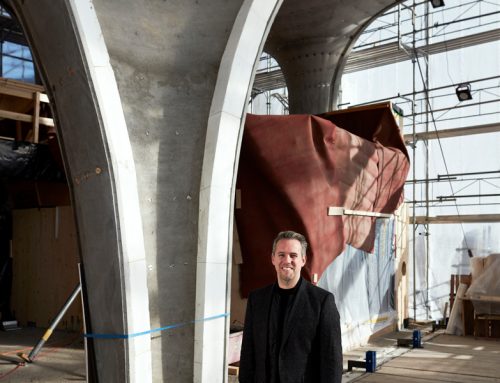 “Businesspeople talking to businesspeople is the best way to address the innovations required to address the challenges of our time,” says Zimbabwean-born telecoms mogul Strive Masiyiwa who is listed as one the World’s 50 Greatest Leaders by Fortune Magazine.
“Businesspeople talking to businesspeople is the best way to address the innovations required to address the challenges of our time,” says Zimbabwean-born telecoms mogul Strive Masiyiwa who is listed as one the World’s 50 Greatest Leaders by Fortune Magazine.
Masiyiwa is the Founder and Executive Chair of Econet, a diversified pan-Africa telecommunications, media and technology group.
Together with Sir Richard Branson he is one of founders of the global think tank, the Carbon War Room, he is a founding member of the Global Business Coalition on Education and he took over the chairmanship of Alliance for a Green Revolution in Africa (AGRA) from former UN Secretary General, Kofi Annan, an organisation that supports Africa’s smallholder farmers.
“When Richard Branson and I go to talk to people, as businesspeople to businesspeople, they respond extraordinarily well.” he explains from his London headquarters. “We sit down and discuss how we can do things better, such as how ships and aeroplanes can be designed to reduce their considerable carbon emissions, or how we can use ICT to ensure that millions more children in Africa get the best possible education.”
Masiyiwa has used his position of leadership to make a profound and positive difference to Africa and the world, living up to his ‘50 Greatest’ accolade, which honours men and women who are transforming the world and inspiring others to do the same.
For his contribution to education and sustainable development in Africa, and a better world, Nelson Mandela Metropolitan University is awarding him an Honorary Doctorate on 5th April.
“Young people and quality education are our greatest assets,” he says. “If we do not do everything possible to offer all our children and all our young people a quality education, we will struggle to address the big issues the world is facing: of peace, equality, health, hunger and women’s empowerment.”
He uses his influence to get involved, and design and sponsor new approaches to education and new educational tools “so that a child in Alexandra Township can enjoy the same standard of education as a child in Bryanston”.
“I use my voice to question how we educate. Education and literacy is something that we invented so it is up to us to change it; to improve what and how we teach, using knowledge and technological advancement to achieve equitable, quality education for all.”
One of many examples of Masiyiwa’s innovative contribution to address the global challenges of our time is his funding assistance towards the Adult Literacy XPRIZE – a global competition to design an educational tool or app for use on a mobile phone that can teach people to read and write in the shortest possible time.
Another example is his and his wife Tsitsi’s Higherlife Foundation (founded in 1996), their Capernaum Scholarship, Joshua Nkomo Scholarship and their membership of the Giving Pledge.
Over the past 20 years the Masiyiwa’s have supported the education of 250 000 African children, based on their commitment to changing the world through education. They have committed to educating two million children in Africa by 2020.
Technology-enabled access to quality education and leadership development is key to their approach. Their schooling commitment focuses on orphaned and vulnerable children and their university scholarships are awarded to highly gifted students. Their main focus is on Masiyiwa’s home country, Zimbabwe, as well a Burundi and Lesotho. They are expanding their outreach to match the pan-African expansion of Econet.
“One of the key components that is missing in the education of African children, from primary school onward, is entrepreneurship. There are simply not enough jobs in Africa; we have to create jobs and incomes, and we have to create and grow wealth because the wealth today is not enough,” he explains.
Entrepreneurship, he elaborates, “is a mindset, not a business”. “So even it you go and work for a company or a corporation, you need to work with a mindset of building the business.”
Masiyiwa believes that entrepreneurship must be taught in primary school, secondary school and at all tertiary institutions irrespective of the qualification students are pursuing.
“From the earliest age onwards, our children and young people need to learn, in interesting ways, how to develop a product and take it to market, how to start and manage a business, how manage their money, how to pay tax, how to invest, how to do a balance sheet, how the stock exchange works and how to buy shares on the stock exchange.
“None of these are complex issues. If well explained everyone can grasp them. And who better to explain entrepreneurism than some of the biggest investors on the stock exchange through their pension funds: teachers.”
The fact that there are so many young people in South Africa wanting to be entrepreneurs puts our country “way ahead of many other countries”, he says, but they need grounding and guidance.
“As an entrepreneur, you will learn, you will fall and you will face some extraordinary difficulties but if you have the right grounding, guidance and drive, you will wake up tomorrow and it will be a brighter day.”
Does he believe there will be brighter days for Africa and the world?
“I do, I am full of faith and hope. I am a great believer in God and I study the Bible every morning and evening as it gives me perspective on the challenges we face,” he replies. “I pray about these and I believe that God opens my eyes as to what is needed,” says Masiyiwa.
His inspired entrepreneurial journey started with his founding of a construction and engineering business in Zimbabwe in 1986.
He subsequently developed Econet but when the Zimbabwean government refused to give him a licence to establish and operate Econet in 1993, he appealed to the Constitutional Court of Zimbabwe, on the basis that the refusal constituted a violation of freedom of expression. After a five-year battle, the court ruled in his favour. The ruling, which led to the removal of the state monopoly in telecommunications, is regarded as one of the key milestones in opening the African telecommunications sector to private capital.
In March 2000, Masiyiwa left Zimbabwe, never to return. He first moved to South Africa, where he founded The Econet Wireless Group. Ten years later he moved to London but retains business interests in South Africa and his ongoing commitment to Africa.
“My great mission now is to help Africa to prepare for its future, based on quality education and entrepreneurship,” he says, adding that we are going to witness incredible leaps forward over the next couple of years, with technology as a key vehicle.
“If I think back to the 1980s when I studied computer engineering at the University of Wales, the computer lab was the size of the building yet it had less capability than a smartphone today. Or, if we look further back to NASA in 1968 – the microchip today is more powerful than all of NASA’s computers combined.
“Therefore the potential going forward is incredible. Consider for a moment that there are over 200 million smartphones in Africa today. These are handheld computers and ideal educational tools.”
A smartphone for every African is now perfectly achievable and affordable, he continues. “But if you had come to me in 1994 and said how much will it cost to put a smartphone in the hands of every African, it would have been unthinkable because it would have been higher than the whole GDP of Africa.”
Data availability and consumption is another giant leap: “Today, my daughter’s data consumption is higher than that of many African countries ten years ago. What I am saying is technology is not linear in its progression; data availability will exponentially increase and the cost of data will collapse, just as the cost of smartphones or computers will.”
Masiyiwa’s message therefore, is that people today need to keep their hearts and minds strong, agile and forward focused: “There was a time when what you learnt at university saw you through your whole career, but this is not so anymore. Once you graduate or start working in whatever field, you will need to keep on learning, unlearning and relearning throughout your life.
“Many of the jobs that graduates will be doing in five years time don’t yet exist. Google, Skype, Facebook and Twitter did not exist ten or twenty years ago, yet they are now amongst the largest companies in the world,” he explains.
“It is all about being geared for ongoing change. People should not be afraid of the change that is coming, they should be excited by it and rise to it because globalisation is all about change,” says Masiyiwa, adding that we are going to witness much disruptive change in our lives that will redefine the world as we know it.




